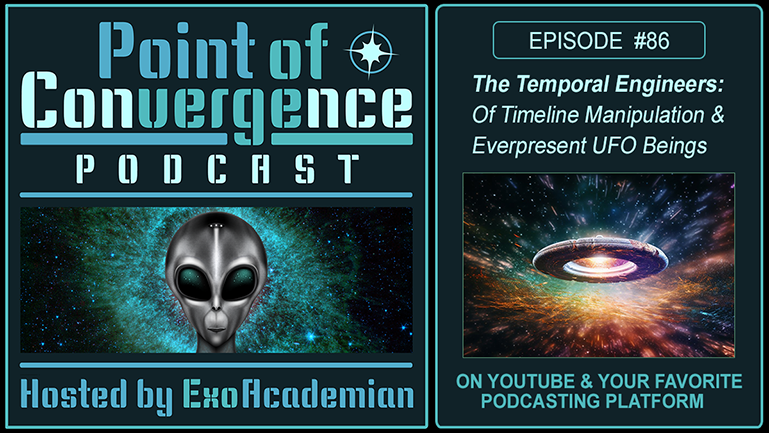Throughout the history of humankind we’ve been pushing the boundaries of exploration, determined to map and – often eventually, populate – every nook and cranny of physical space we come across. This has meant we’ve ventured into every corner of the earth, even those sporting the most inhospitable of environmental conditions.
When the modern-day UFO Phenomenon first exploded into public consciousness around the era of the 1940s through, not one, but a series of remarkable events, that orientation around frontier consciousness led almost everyone of the time – once it was clear these strange objects seen – designated UFOs – unidentified flying objects – were very unlikely to be of prosaic origin – to assume that these apparently intelligently controlled vehicles must be coming from the last of the frontiers we had yet to explore; namely: outer space – they greater expanse of the surrounding cosmos.
This of course suggested the existence of extraterrestrials; beings who had evolved on entirely different planets in entirely different star systems in far flung corners of the Milky Way Galaxy or beyond. This sparked our imagination, leading us to imagine what they might look like, and how they might behave. Would they look anything like us? Would they follow our behavior patterns? Would they want to conquer and colonize us the same way we’d done with each other?
As the 20th century marched on, many people around the planet began to report encounters with the very beings supposedly piloting these sophisticated vehicles. Interestingly, while modern science had long leaned towards extraterrestrial beings likely looking decidedly unlike us – because of their origin being tied to completely different evolutionary pressures in completely different home planet contexts, the reports arising from these encounters with “other-worldly beings” spoke to a remarkably humanoid form; and indeed on regular occasion, even a seemingly fully human form.
Furthermore, even the types less human in appearance still matched the general morphology of other forms of life from Earth: including reptilian and insectoid, including mantis beings – bearing a striking resemblance to 9 foot tall praying mantis insects found right here on our home planet.
Of course, this raises an obvious question: why? Why were these encountered forms flying in the face of our expectations around what extraterrestrial beings would likely look like – and, more importantly, what they would NOT look like? I would suggest to you that perhaps the issue lies in one of our earlier assumptions: that the next frontier to be explored is always spatial in nature. But what if these others were not coming from elsewhere, but from some as yet poorly understood non-spatial dimension?
On that note, the notion of a multiverse opened up the interdimensional hypothesis to popular consideration. And that’s still in the running, suggesting these beings are arriving from planes of existence sitting in parallel to our physical existence. But there is another possibility that has long escaped the mainstream of our collective imagination around these beings; namely: time travel. In other words, what if these beings are not so much coming from somewhere else, but rather some when else?
When one stops to consider this possibility, not only does it hold its own – in terms of serving as a potential theoretical explanatory mechanism – but it also fits remarkably well with key components of the historical data, not just around the appearance and behavior of these various beings, but also with other key elements arising from the historical experiencer literature. This possibility that time is a key variable in the overarching phenomenon is a fascinating one, one that will be our focus in this, the 86th episode of the Point of Convergence podcast.


 085 ~ The Dawning of Disclosure
085 ~ The Dawning of Disclosure